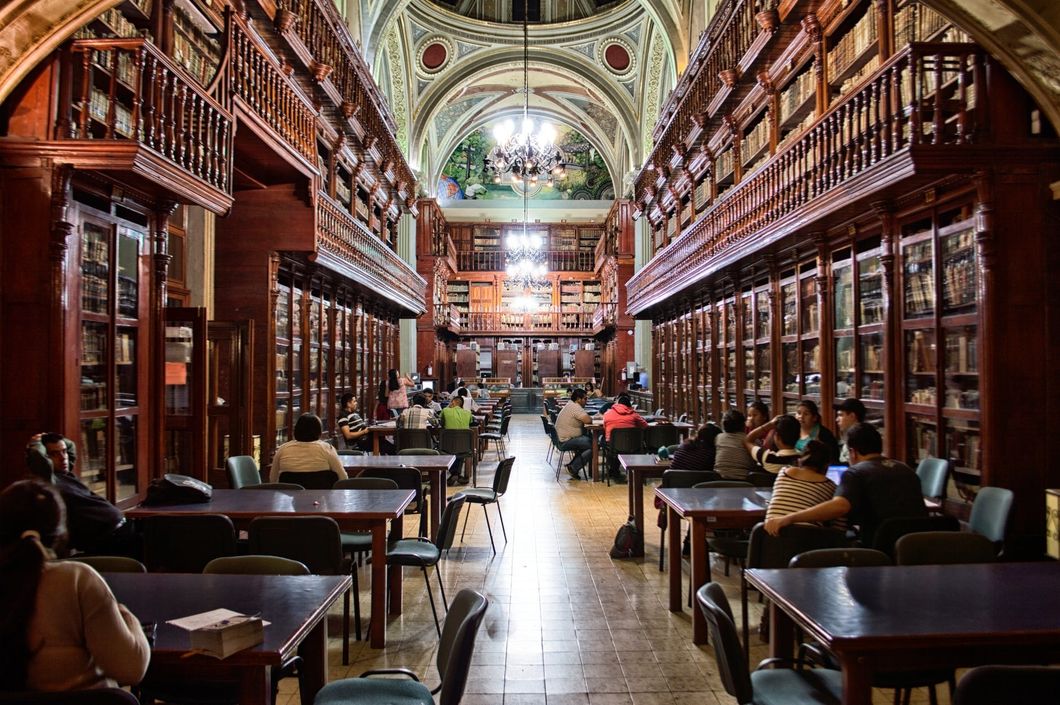To open up midterm week, I lost what I had made into an extension of myself. Simply put, my laptop and my phone both became nonfunctional at the same time.
Now, speaking relatively, I like to think of myself as a fairly unplugged person. I'm inactive on social media, I prefer to print out my class readings, and I generally avoid interacting too much with people via online messaging services.
But with all my personal tech gone, it became clear that even in-person, non-tech ventures quietly relied on these electronics.
Mundane example: How was I supposed to wake up in time for my classes, my time spent reviewing with classmates, my exams, without an alarm? As we decry technology, we praise physical presence. But to consider this practically, I must recognize that I cannot be present if nobody has woken me up, and by this point, asking another person on a different schedule to wake me up would be, quite plainly, rude and selfish.
Using a public access computer, I researched ways to wake up without my phone alarm, and discovered two answers. One was to use an alarm on my laptop, which would not be an option. The other was to train myself to wake up at a certain time. While this option seemed attractive, the idea of usable and useful linear time in any substantial quantity is, in this case, merely romantic. Obviously, my tech had taught me that I would always have what I needed immediately. And now, I needed to wake up the next morning. In the end, I just bought an alarm clock.
But then there are the phenomena that we more readily associate with technology when recalling its status as an overlord: relationships. As previously mentioned, I'm not a huge fan of connections which are centralized online. But even if I only meet people in person, I need my messages to plan to see someone, to make sure they're willing to hang out, to coordinate meeting locations, to find them once I've arrived, to determine directions either to them or to places to visit together.
We prepare for our human-to-human, face-to-face interactions through technological mediums. Even the spontaneous, the unexpected, and the unplanned are mediated by a quick message to make sure it's all possible. We are totally unprepared to go into anything without knowing it will work out smoothly.
My interactions sans technology can be described best as encounters. This arose largely because I could not study wherever I wanted or arrange with friends to meet them at a specific location. Instead, wherever I went to sit down with my reading or to find a publicly accessible computer, I simply found people and went from there.
As another unexpected effect, I learned more about friends' and acquaintances' meaningful places because, instead of compromising or planning places to find one another- or not meeting at all for fear of getting in the way of midterm studying- I found people where they were at, where they themselves wanted to be. And finding them in the environments they loved as individuals meant more than I could have anticipated. In these cases, they were studying and existing without having shaped their methods or locations to arrangements with others. They were acting only for themselves, and by only running into them and never arranging with them, I learned more about them.
The ability to arrange to meet people, to work with their schedule and compromise, is extremely important. I'm extremely grateful to have my technology back and write this article on my own schedule, on my own device, in whatever space I choose, and to be able to message the person I plan to meet here later so we can find one another. But I'll certainly be hoping to pay more attention to the human capacity to encounter.



















